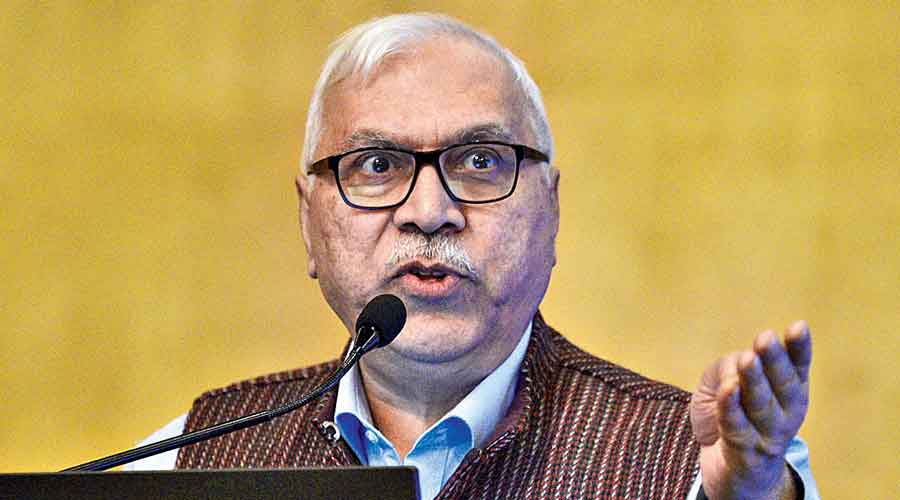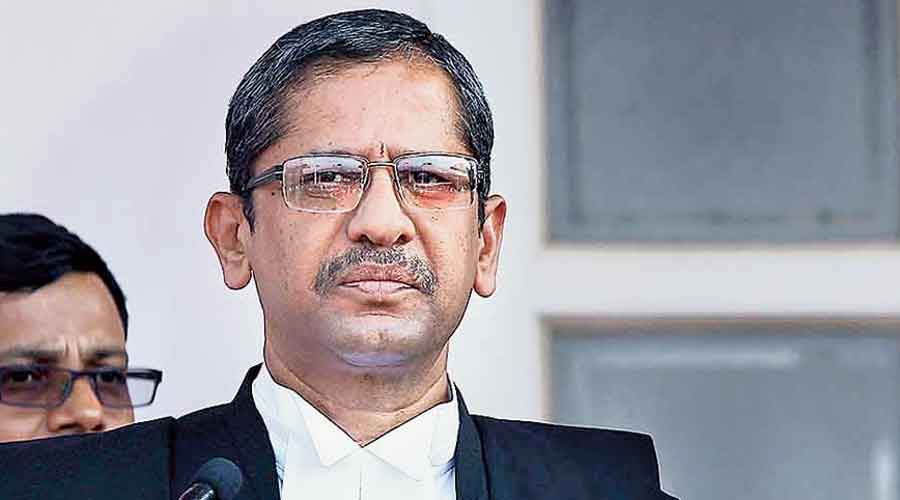Former chief election commissioner S.Y. Quraishi, ex-Supreme Court judge Madan B. Lokur and several others have criticised the electoral system and the lack of checks on executive overreach that leaves poll commissioners with a sense of insecurity.
At a book release on Monday, Quraishi expressed concern over the delay in the Supreme Court hearing petitions against the electoral bond scheme, which allows anonymous donors to buy bonds from banks to fund political parties.
The book, Electoral Democracy? An Inquiry into the Fairness and Integrity of Elections in India, is a collection of essays based on reports of the Citizens’ Commission on Elections, an independent inquiry into the electoral system by retired bureaucrats and other eminent citizens that was chaired by Justice Lokur, now a judge of Fiji’s Supreme Court.
Justice Lokur said at the online launch: “It (the Election Commission of India) is an independent constitutional body but it appears that the selection and appointment of election commissioners can be controlled. While the chief election commissioner (CEC) has constitutional protection, the election commissioners do not. We have seen in the past how a particular election commissioner was dealt with when he dissented in some instances. The appointment process perhaps needs to be revisited.”
Election commissioner Ashok Lavasa reportedly gave 11 dissent notes and finally recused himself from cases after the EC omitted his dissent from its replies to complainants who had flagged speeches, including those where the Prime Minister mentioned the armed forces or appeared to make communal jibes during the 2019 Lok Sabha polls.
In September that year, Lavasa’s wife, son and sister came under the scanner of the income-tax department and the Enforcement Directorate for alleged irregularities in their filings.
Lavasa quit the EC in 2020 to join the Asian Development Bank as a vice-president — with the support of the Centre.
If Lavasa had not quit, he would have been in line to become chief election commissioner.
Quraishi said: “The most powerful commission in the world has the most defective system of appointment, that is, by the executive of the day…. If a leader of Opposition had also signed my appointment letter, I would have felt much bolder and more comfortable.”
He added: “The CEC is protected from removal and can only be impeached. The other two are not, with the result that they consider themselves on probation and they are always looking over their shoulder as to whether the government is happy with me or not. Will I be elevated, will I not be elevated? The moment that thought crosses their mind, their backbone breaks.
“It is very clear that constitutional reform is required. When the CEC was granted protection, it was a single-member institution. Now that it is a three-member institution, it is very logical that the protection should be extended to the entire commission.”
Quraishi also expressed disappointment at the delay in the disposal of the petitions against electoral bonds.
“Now the Supreme Court (on) such an issue of national importance on which the integrity of the country is dependent, they have no time for this. It’s a disgrace. I have been calling the SC a guardian angel of democracy and I still insist that most of the reforms have come from them, but what has happened now?” he said.
The apex court had refused to stay the sale of the bonds in March last year.
Others who spoke at the launch were former IAS officers M.G. Devasahayam, Wajahat Habibullah (a former chief information commissioner) Jawhar Sircar (now a Trinamul Rajya Sabha MP), and K.N. Srivastava, IIT Delhi professor Subhasis Banerjee, Association for Democratic Reforms co-founder Jagdeep Chhokar, and National Campaign for People’s Right to Information co-convener Anjali Bhardwaj.












